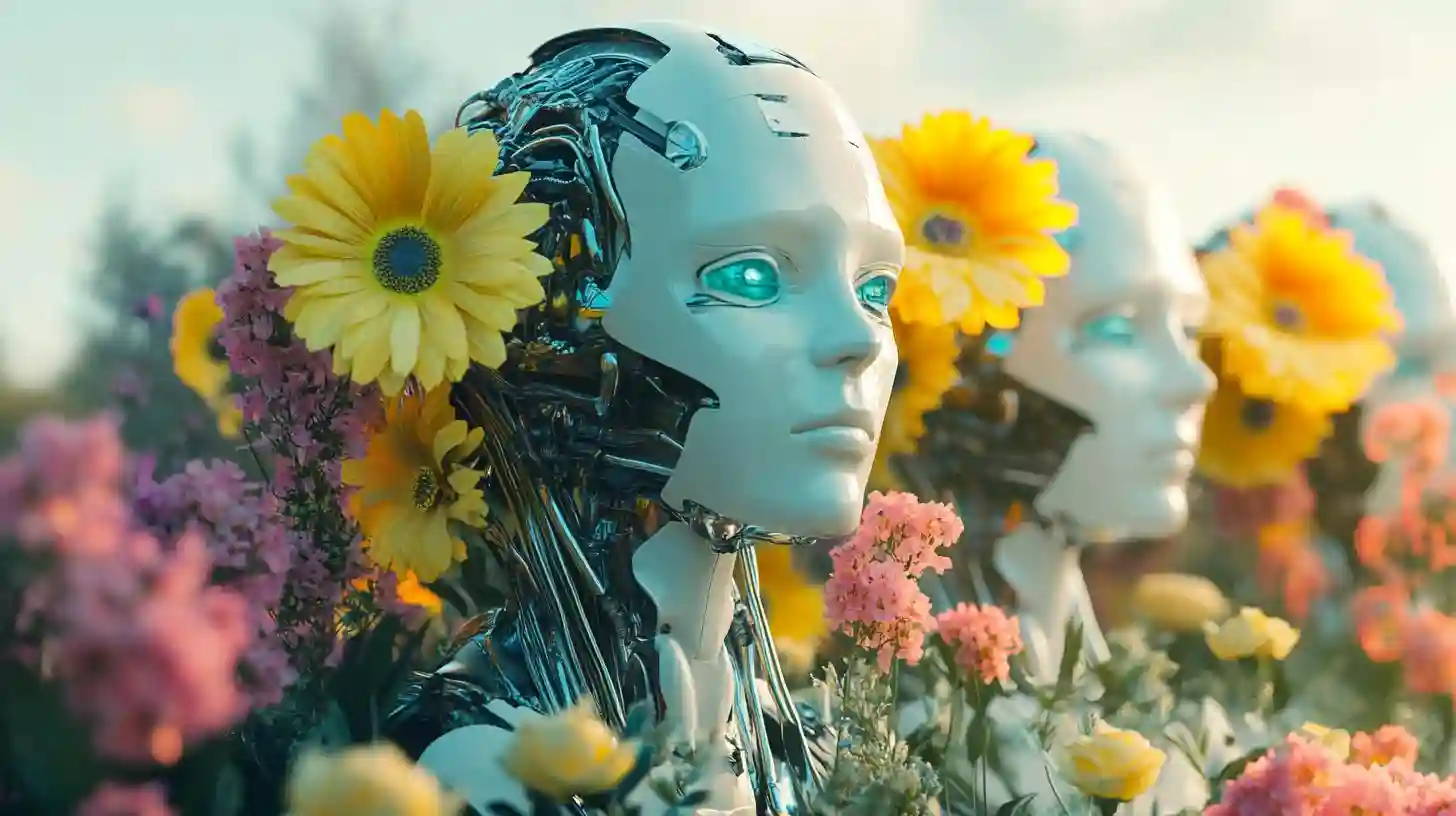
Thoughtvaultzone

The concept of omnipotent robots has captivated the imagination of technologists, researchers, and the general public alike. As advancements in artificial intelligence and robotics continue to accelerate, these intelligent machines are beginning to permeate various sectors, fundamentally altering how we live, work, and interact with technology. By effectively blending capabilities once reserved for distinct domains, omnipotent robots are reshaping the landscape of AI, pushing the boundaries of what is possible while raising ethical and practical implications that deserve careful consideration.
At the heart of this transformation is the integration of advanced AI algorithms with physical robotics. These robots can process vast amounts of data in real time, offering insights and predictions that were unimaginable just a generation ago. With machines capable of learning from their environments, adapting to new information, and making autonomous decisions, the barriers that once limited their functionality are steadily dissolving. In industries such as manufacturing, logistics, healthcare, and agriculture, the deployment of these advanced robots is enhancing productivity, increasing efficiency, and diminishing the risks associated with human error.
For instance, in healthcare settings, omnipotent robots are taking on numerous roles, ranging from surgical assistants to patient care companions. These robots possess the capability to analyze complex medical data, recognize patterns in patient symptoms, and even provide tailored treatment plans. The potential for improving patient outcomes through AI-driven diagnostics and treatment is immense, illustrating how these intelligent machines can transcend traditional boundaries.
Furthermore, the logistics and supply chain sectors are undergoing a significant transformation with the advent of these powerful robots. Omnipotent robots can manage inventory, optimize delivery routes, and ensure efficient operation in warehouses. This level of automation minimizes operational costs and enhances customer satisfaction by ensuring timely deliveries. The integration of autonomous drones for last-mile delivery is a prime example of how these robots are enhancing the logistics ecosystem, helping to bridge the gap between consumer demand and delivery efficiency.
In agriculture, the introduction of omnipotent robots is revolutionizing farming techniques. Equipped with advanced sensors, these robots can monitor crop health, administer water and nutrients precisely, and even harvest produce at peak ripeness. By utilizing AI-driven data analytics, farmers can make more informed decisions about their crops, ultimately leading to higher yields and sustainable farming practices. The capacity for real-time data analysis and on-the-go adaptation empowers farmers to be more responsive to environmental changes and market demands.
However, the rise of these versatile robots is not without its challenges. The implementation of omnipotent machines raises ethical questions regarding employment displacement and the socio-economic impacts that might follow. As robots take on tasks traditionally performed by humans, there is a growing concern about job losses in sectors that rely heavily on manual labor. While it is likely that new job opportunities will emerge in AI and robotics-related fields, the transition may create significant disruption for those whose roles are automated.
Moreover, the safety and security of omnipotent robots present further considerations. With their increasing capabilities, the potential for misuse or malicious intent becomes a pressing issue. Ensuring that these robots operate within ethical guidelines and do not infringe upon privacy or security rights is paramount. Governance and regulation surrounding the deployment of such advanced technologies will need to evolve alongside their capabilities in order to mitigate risks and safeguard societal interests.
Education and public awareness also play vital roles in this transition. As society embraces these advanced robots, it is crucial for individuals to develop skills that complement these technologies. Fostering a workforce adept in collaboration with intelligent machines will ensure that we harness their full potential while mitigating adverse consequences. Educational institutions and organizations must aim to provide training that empowers individuals to thrive in this rapidly changing landscape.
Beyond the workplace, the impact of omnipotent robots extends to everyday life. With the advent of personal assistants, smart home technology, and even autonomous vehicles, we are seeing an increasing number of instances where these robots improve our quality of life. From managing daily tasks to providing companionship, the integration of AI-powered machines into our homes is reshaping how we think about technology's role in our lives.
The evolution of omnipotent robots signifies not just a leap in technological capability but also prompts a fundamental reevaluation of human-robot interactions. As we stand on the cusp of this new era, addressing questions surrounding ethics, employment, and education is vital. The potential of these intelligent machines to redefine industries and elevate human experience is profound; however, their successful integration hinges upon our collective ability to navigate the complex challenges that accompany such profound change. The future of AI and technology is being redefined by these omnipotent robots, inviting a new world of possibilities that requires us to think critically and act responsibly.